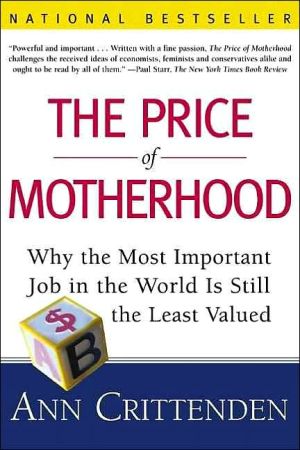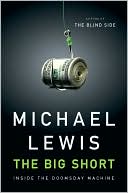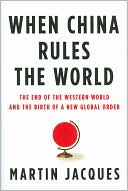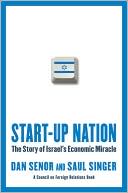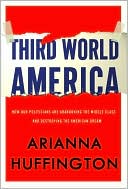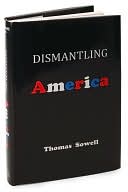The Price of Motherhood: Why the Most Important Job in the World Is Still the Least Valued
In the pathbreaking tradition of Backlash and The Second Shift, this provocative book shows how mothers are systematically disadvantaged and made dependent by a society that exploits those who perform its most critical work. Drawing on hundreds of interviews and the most current research in economics, history, child development, and law, Ann Crittenden proves that although women have been liberated, mothers have not.\ The costs of motherhood are everywhere apparent. College-educated women pay...
Search in google:
In the pathbreaking tradition of Backlash and The Second Shift, this provocative book shows how mothers are systematically disadvantaged and made dependent by a society that exploits those who perform its most critical work. Drawing on hundreds of interviews and the most current research in economics, history, child development, and law, Ann Crittenden proves that although women have been liberated, mothers have not.The costs of motherhood are everywhere apparent. College-educated women pay a "mommy tax" of over a million dollars in lost income when they have a child. Family law deprives mothers of financial equality in marriage. Stay-at-home mothers and their work are left out of the GDP, the labor force, and the social safety net. With passion and clarity, Crittenden demonstrates that proper rewards for mothers' essential contributions would only enhance the general welfare.Bold, galvanizing, full of innovative solutions, The Price of Motherhood offers a much-needed accounting of the price that mothers pay for performing the most important job in the world. Ben Dickinson A bracing call to arms . . . a mind-blowingly sensible alteration of America's present parenting arrangements. —Elle
A newspaper reporter told me that his wife used to be his boss before she quit to raise their two children. She now makes one-fourth of his salary, working as a part-time consultant. "It was her choice," he says.\ But mothers' choices are not made in a vacuum. They are made according to rules mothers didn't write. Married working mothers pay the highest taxes in the country on their earned income, which powerfully affects their choice of whether to work or not. And what many mothers really want is a good part-time job, yet there is no rich and vibrant part-time labor market in the United States.\ To most women choice is all about bad options and difficult decisions: your child or your profession; taking on the domestic chores or marital strife; a good night's sleep or time with your child; food on the table or your baby's safety; your right arm or your left.
Introduction ..... 1 1: Where We Are Now ..... 13 2: A Conspiracy of Silence ..... 28 3: How Mothers' Work Was "Disappeared": The Invention of the Unproductive Housewife ..... 45 4: The Truly Invisible Hand ..... 65 5: The Mommy Tax ..... 87 6: The Dark Little Secret of Family Life ..... 110 7: What Is a Wife Worth? ..... 131 8: Who Really Owns the Family Wage? ..... 149 9: Who Pays for the Kids? ..... 162 10: The Welfare State Versus a Caring State ..... 186 11: The Toughest Job You'll Ever Love ..... 202 12: An Accident Waiting to Happen ..... 218 13: "It Was Her Choice" ..... 233 Conclusion: How to Bring Children Up Without Putting Women Down 256 Notes ..... 275 Acknowledgments ..... 305 Index ..... 309
\ From Barnes & NobleThis stunning read addresses the harsh reality of a society that, while glorifying motherhood in theory, relegates mothers to second-class status. In fact, the author identifies motherhood as the "single biggest risk factor for poverty in old age," a chilling assertion. With a mix of outrage and sensibility, Crittenden pinpoints the failings of society toward mothers and offers suggestions for improved treatment of this marginalized sector.\ \ \ \ \ Ben DickinsonA bracing call to arms . . . a mind-blowingly sensible alteration of America's present parenting arrangements. —Elle\ \ \ Megan RutherfordA scathing indictment of policies that cheat mothers . . . Crittenden turns out a fresh, persuasive argument. Sure to inspire vigorous debate. —Time\ \ \ \ \ Paul Starr. . . challenges the received ideas of economists, feminists and conservatives alike and ought to be read by all of them. —The New York Times Book Review\ \ \ \ \ Paul StarrWritten with a fine passion and at times a biting wit, it challenges the received ideas of economists, feminists and conservatives alike . . . As informative and engaging in its details as it is compelling in its overall argument.\ — New York Times Book Review\ \ \ \ \ Susan StraightFascinating . . . shows how women have been consistently denied social and, more importantly, monetary equality for raising their families. —Los Angeles Times\ \ \ \ \ Publishers Weekly\ - Publisher's Weekly\ Americans extol motherhood as "the most important job in the world," yet when couples divorce, mothers' and their children's standards of living usually decline precipitously, while fathers' rise. Crittenden, a former economics reporter for the New York Times, lays out the going rate for a woman's time: "$150 an hour or more as a professional, $50 an hour or more in some businesses, $15 an hour or so as a teacher, $5 to $8 an hour as a day-care worker and zero as a mother." Mothers (whose labor is not calculated in any official economic index) have no unemployment insurance to tide them over after divorce, no workers' compensation if they're injured and no Social Security benefits for the work they do, although a housekeeper or nanny paid for the same work would earn such benefits. In a breezy, journalistic style, Crittenden chronicles how the Industrial Revolution created the idea of the "unproductive housewife," how this concept penalizes women after divorce and how tax policies encourage mothers to quit work. Crittenden proposes several remedies, some available in most industrialized countries (paid maternity leave, flexible work hours for parents, universal preschool, free health coverage for children) and others seemingly utopian (Social Security credits for mothering, remedying the tax bias against married working mothers). This thoroughly documented and incisive book is must reading for women contemplating parenthood or divorce, and could prove an organizing tool for women's organizations. Copyright 2000 Cahners Business Information.\ \ \ \ \ Library JournalCrittenden (Killing the Sacred Cows: Bold Ideas for a New Economy) draws upon hundreds of interviews to illustrate the irony of American society's praise of the "profession" of maternal love/care while undervaluing and exploiting mothers. Even as late as 1995, "married working mothers in the United States with children earned half of what their husbands earned." These economic dependents have been paying the dreaded "mommy tax": lost income (more than $1 million) owing to the "wages foregone by the primary parent." Obviously, well-educated, high-income individuals are the most severely penalized. This exemplary book covers the economic myths of motherhood through the stark testimonies of childcare hardships and financial inequality in marriage: "The pay $580 a month was barely enough to cover the bills for a family of four, but not enough for decent day care .Her ex-husband never paid a nickel in child support." A wonderful resource for students of economics, women's studies, politics, and for parents-to-be, this book should be a wake-up call to America. Kay Meredith Dusheck, Univ. of Iowa, Iowa City Copyright 2001 Cahners Business Information.\ \
